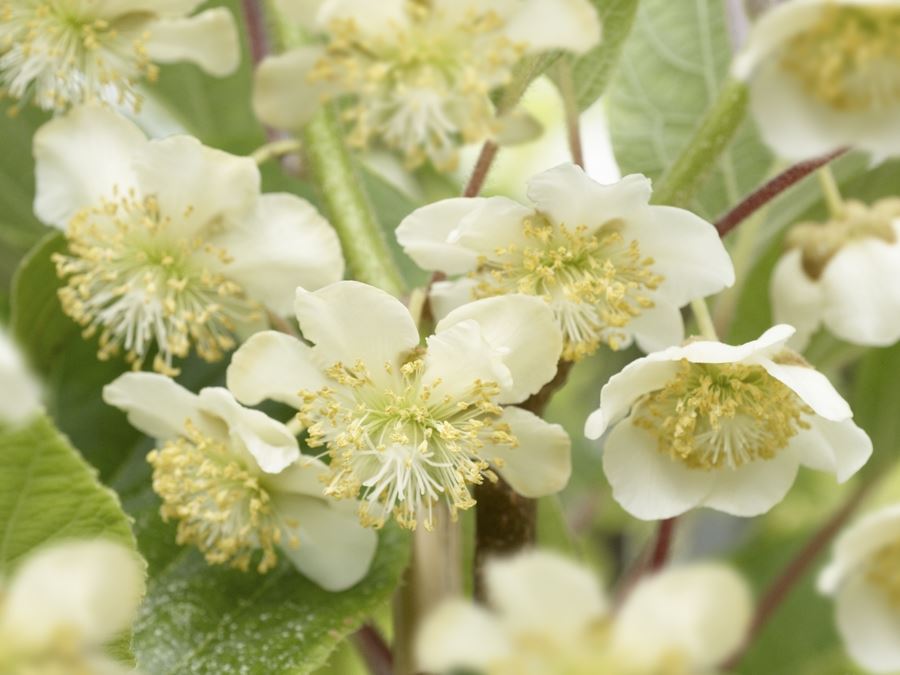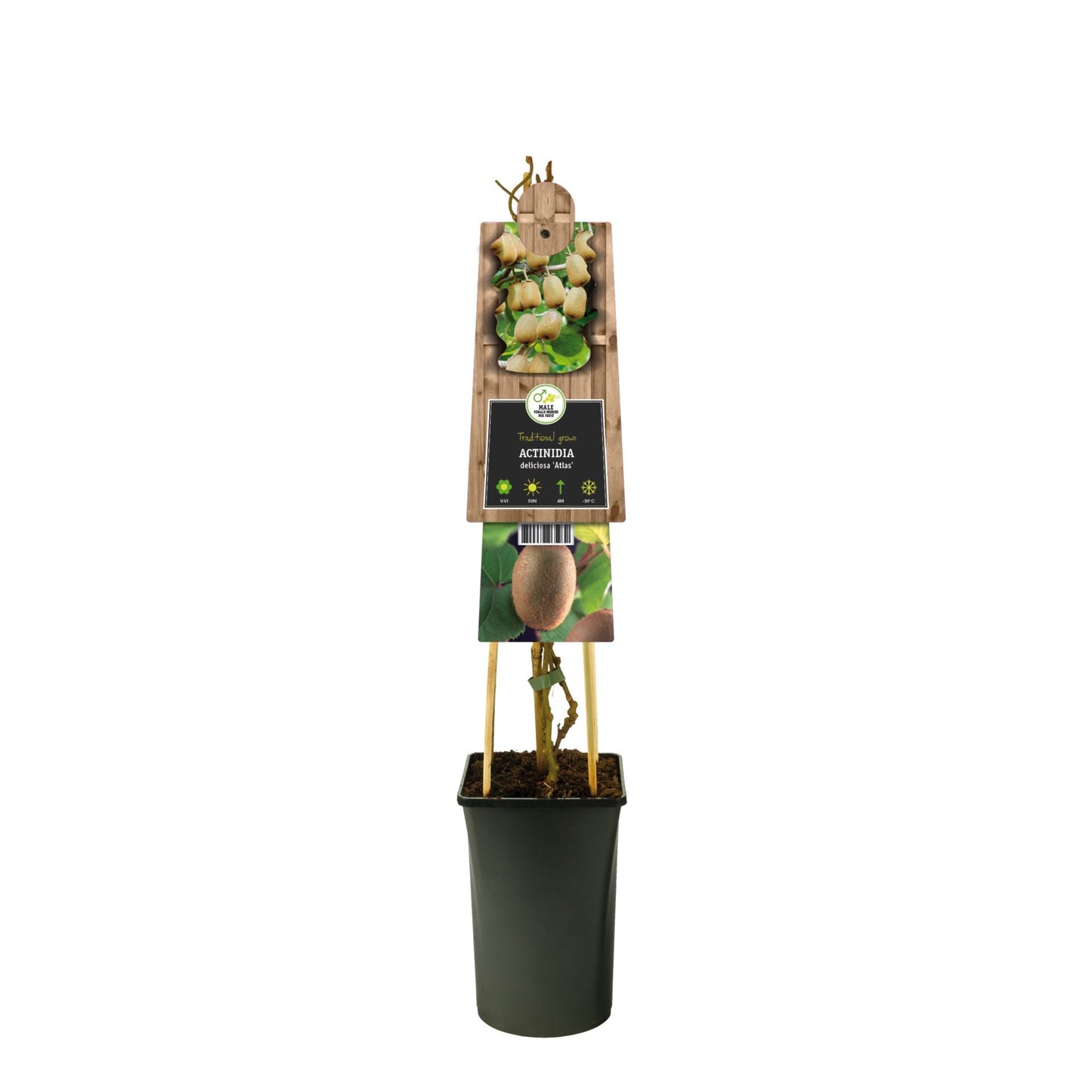كيوي atlas
كيوي atlas
Couldn't load pickup availability
Actinidia chinensis atlas 17cm
For general guidance on growing Actinidia chinensis, commonly known as kiwi or Chinese gooseberry, here are some steps you can follow:
Climate: Actinidia chinensis prefers a temperate climate. It is hardy in USDA zones 7-9. Provide a location with full sunlight to partial shade.
Soil: Plant in well-draining, fertile soil with a slightly acidic to neutral pH. Amend heavy or compacted soils with organic matter to improve drainage.
Planting: Plant kiwi vines in early spring or late fall. Space multiple plants about 10 to 15 feet apart, as kiwi vines can be vigorous.
Support: Provide a strong support structure, such as a trellis or arbor, as kiwi vines are climbers. Install the support before planting to avoid disturbing the roots later.
Watering: Keep the soil consistently moist, especially during dry periods. Mulch around the base to retain moisture and regulate soil temperature.
Fertilizing: Use a balanced fertilizer or one formulated for fruit-bearing plants. Fertilize in spring and early summer, following package instructions.
Pruning: Prune kiwi vines to control their size, shape, and promote airflow. Remove dead or diseased wood regularly. Prune in late winter or early spring before new growth begins.
Harvesting: Kiwi fruits are typically ready for harvest in late fall after the first frost. Harvest when the fruit is firm and fully ripened. Kiwis will continue to ripen after picking.
Pollination: Kiwi plants are usually dioecious, meaning there are male and female plants. For fruit production, you’ll need both a male and a female plant, as kiwis require cross-pollination.
Protection from Cold: While Actinidia chinensis is hardy, young plants may need protection from severe cold. Mulching around the base can help insulate the roots.
Pest Control: Watch for pests such as aphids or scale insects. Use insecticidal soap or neem oil for organic pest control.
Share





